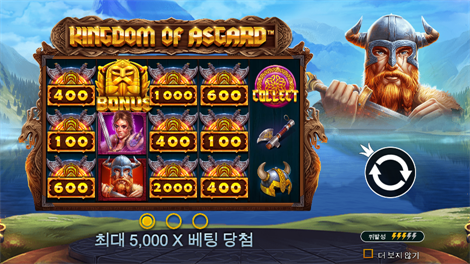프라그마틱 홈페이지 (Pragmatic Play)
프라그마틱 게임은 iGaming 산업의 선두 콘텐츠 제공업체로, 혁신적이고 표준화된 모바일 기반의 광범위한 포트폴리오를 운영합니다. 우리는 고품질 엔터테인먼트에 대한 강렬한 열정을 갖고 있으며, 슬롯과 라이브 카지노, 빙고 등 다양한 제품을 통해 고객에게 최상의 경험을 제공합니다.

한 번의 API 연동으로 슬롯, 라이브 카지노, 빙고, 가상 스포츠 및 스포츠 베팅 등을 모두 즐길 수 있습니다.

20개를 초과하는 관할 지역에서 라이센스와 인증을 획득했습니다.

다양한 수상 경럭 콘텐츠 보유

모바일, 데스크톱, 33개 언어와 모든 화폐

라이센싱 (Licensing)

몰타에서 모든 게임 활동의 거버넌스를 책임지는 독립적인 단일 규제 기관이 MGA입니다,
전체 산업에서 효과적이며 입법적인 구조와 기업 체계를 제공하고 있습니다.

영국의 상업적 게임을 허가 및 규제하기 위해 설립된 독립 위원회인 도박 위원회는 인가된 당국과 협력하고 있습니다. 공공 기관은 디지털 문화 미디어 스포츠 도박 위원회(DCMS)의 후원 하에 허가된 자들의 요구 사항을 정하고, 이를 준수하는지 평가합니다.

인증 (Certification)

1981년 11월 27일에 설립된 BMM Testlabs는 사설 독립 게임 테스트 실험실로, ISO 17025 IT 및 17020 검사 기관으로 인증받았으며, 400개가 넘는 관할 지역에서 인정을 받고 있습니다. 현재 이 회사는 13개국에 14개의 사무소를 가지고 있습니다.

Gaming Associates는 독립적이고 국제적으로 공인된 ATF(Acredited Test Facility)입니다. ISO 9001, ISO/IEC 17025 및 PCI QSA 인증을 받은 회사로, 전 세계적으로 당국의 인정을 받고 있습니다.


















![프라그마틱 플레이 [더 도그 하우스]](static/picture/Bingo-Thumbnail-Bingo-Blast.png)
![프라그마틱 [골드 오아시스]](static/picture/Bingo-Thumbnail-Sweet-Bonanza-Bingo.png)
![프라그마틱플레이 [핫 투 번 익스트림]](static/picture/296x176_Diamond-dazzle.png)
![프라그마틱 [엑스칼리벌 언리쉬드]](static/picture/Bingo-Thumbnail-Boombox.png)
![프라그마틱 [캐시 칩스]](static/picture/Bingo-Thumbnail-Country-Roads.png)
![프라그마틱 [와일드 와일드 바나나즈]](static/picture/Bingo-Thumbnail-Release-The-Kraken.png)
![프라그마틱 [클럽 트로피카나]](static/picture/Bingo-Thumbnail-Rock-N-Swing.png)
![프라그마틱플레이 [카우보이 골드]](static/picture/Bingo-Thumbnail-The-Jackpot-Room.png)
![프라그마틱 [젬스 오브 세렝게티]](static/picture/Bingo-Thumbnail-Snowball-Blast.png)
![프라그마틱플레이 [데이 오브 데드]](static/picture/Bingo-Thumbnail-Zoom-Room.png)






![프라그마틱플레이 [불 피에스타]](static/picture/evolution-gaming-ISO27001-certificate-EN-20231.png)




